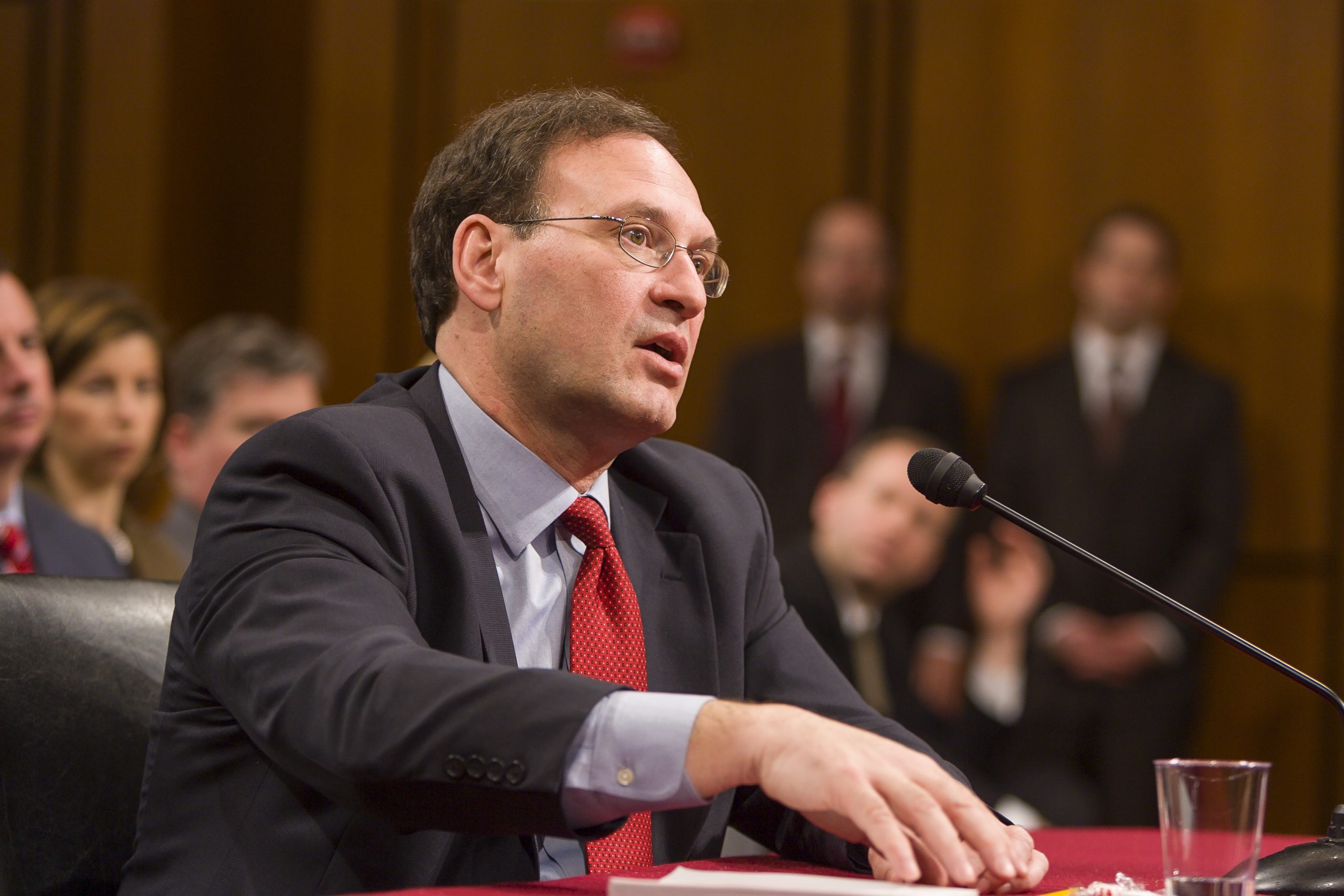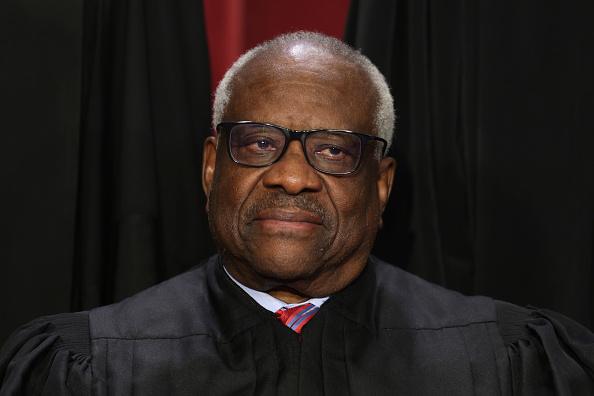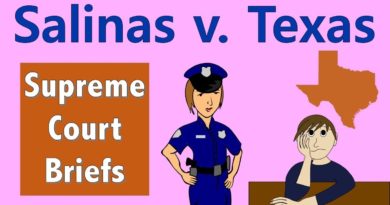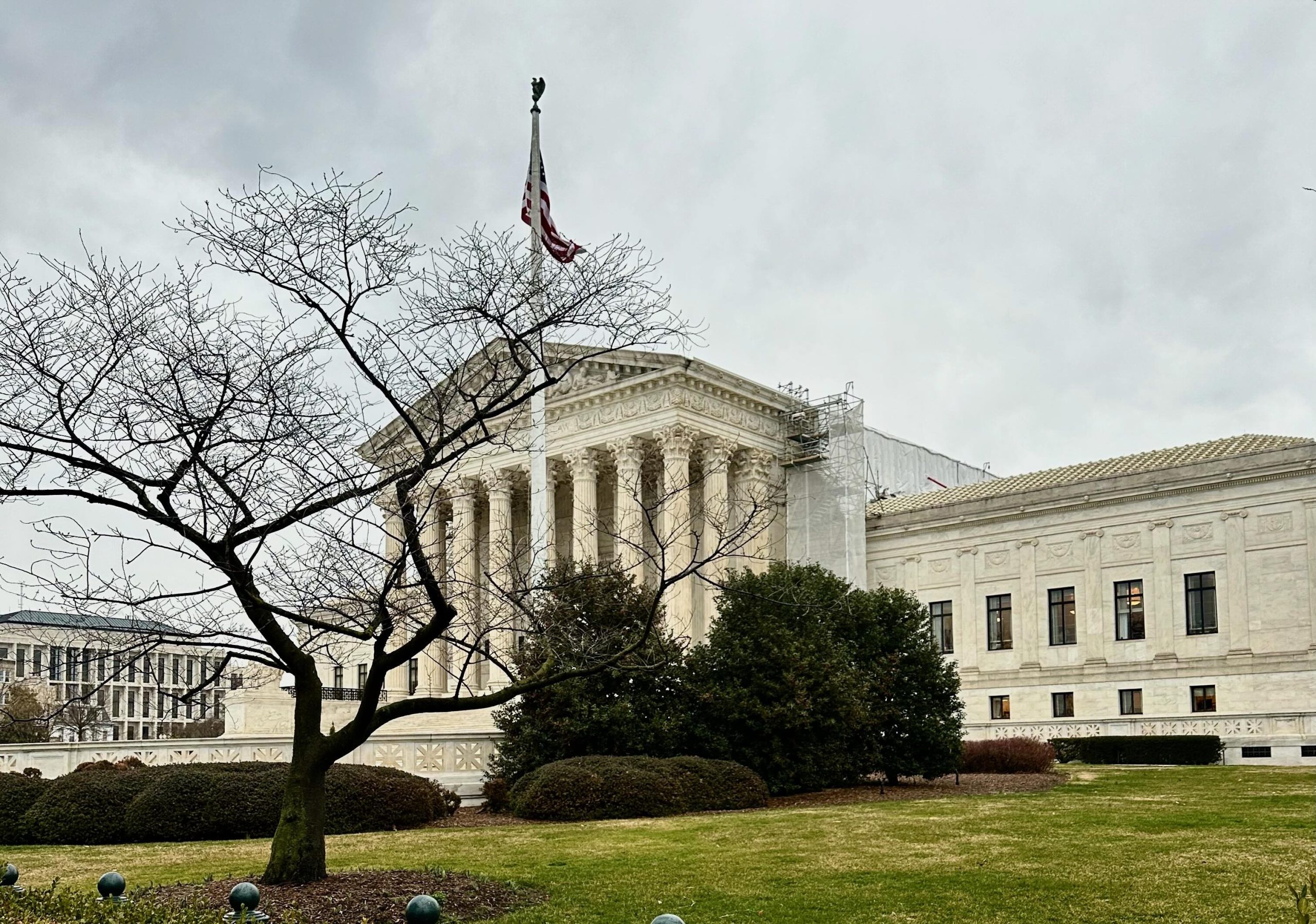Alito rebuffs calls for recusal in upcoming tax dispute
SCOTUS NEWS
on Sep 8, 2023
at 1:20 pm
Justice Samuel Alito at his 2006 Senate confirmation hearing. (Rob Crandall via Shutterstock)
Justice Samuel Alito on Friday rebuffed a call from Democrats on the Senate Judiciary Committee for him to recuse himself from a tax dispute because of his links to an attorney in the case. Alito contended that when – as in this case – “there is no sound reason for a Justice to recuse, the Justice has a duty to sit.” Alito’s decision came in a statement appended to a list of routine summer orders issued on Friday morning. It was the latest development in a series of controversies surrounding the justices’ ethical practices, which have included extensive reporting regarding luxury travel hosted by billionaires that Alito and Justice Clarence Thomas did not promptly include on their annual financial disclosures.
The controversy centers on two interviews in the Wall Street Journal with James Taranto, an editor at the paper, and David Rivkin, a lawyer in private practice who served in the Ronald Reagan and George H.W. Bush administration. In the first interview, in April, Alito discussed the aftermath of the leak of the draft opinion in Dobbs v. Jackson Women’s Health Organization, in which the court overturned the constitutional right to an abortion. Despite a public report from the court’s marshal indicating that she had been unable to determine who disclosed the draft, Alito told the paper that he had a “pretty good idea who is responsible for the leak.” And he called speculation that one of the conservative justices might have leaked the draft to solidify a five-justice majority “infuriating,” saying that the leak “made us targets of assassination.”
In a second interview in July, Rivkin and Taranto called Alito an “important voice on the court with a distinctive interpretative method that is rooted in originalism and textualism.” Alito spoke candidly about recent cases and his colleagues’ approach to judging, and he suggested that Congress did not have the power to regulate the Supreme Court.
On Aug. 3, Democrats on the Senate Judiciary Committee, led by Sen. Richard Durbin, a Democrat from Illinois, wrote to Chief Justice John Roberts about the Alito interviews. Durbin urged Roberts to “take appropriate steps to ensure that Justice Alito recuses himself in any future cases involving legislation that regulates the Court.” Alito’s comments in the July interview, Durbin argued, “unquestionably engender doubt that he could fairly discharge his duties” if a challenge to legislation regulating the court were to come before the justices.
Durbin also contended that Alito should recuse himself from Moore v. United States, a tax case in which the justices are likely to hear argument in December, because Rivkin represents the petitioner in the case. Rivkin’s “access to Justice Alito and efforts to help Justice Alito air his personal grievances could cast doubt on Justice Alito’s ability to fairly discharge his duties in a case in which Mr. Rivkin represents one of the parties,” Durbin wrote.
Roberts did not respond to Durbin’s letter. But in a four-page statement attached to the court’s orders on Friday, Alito rejected Durbin’s request for him to recuse himself from Moore. Rivkin acted as a journalist, rather than an advocate, when he interviewed Alito in April and July, the justice insisted, and they never discussed his involvement in the case. Alito cited other instances in which his colleagues had been interviewed by media outlets or attorneys but did not later recuse from cases in which those outlets or attorneys were involved, arguing that there “was nothing out of the ordinary about the interviews in question.”
More broadly, Alito continued, the justices often must confront cases involving lawyers or “friends of the court” who have either praised or criticized them, or which they personally know the attorneys involved. “If we recused in such cases,” Alito emphasized, “we would regularly have less than a full bench, and the Court’s work would be substantially disrupted and distorted.” Instead, he stressed, the justices simply “put favorable or unfavorable comments and any personal connections with an attorney out of our minds and judge the cases based solely on the law and the facts. And that is what we do.”
In a press release, Gabe Roth, the executive director of the nonpartisan watchdog group Fix the Court, criticized the Alito statement. Roth noted that Alito recuses himself several times each year from cases involving companies in which he owns stock. “Disqualification from a stock case under the law is no different from disqualification in a case where a justice’s ‘impartiality might reasonably be questioned.’ And reasonable people, like Chairman Durbin, are questioning Alito’s impartiality,” Roth said. Roth added that Alito is free to give multiple interviews. But Rivkin’s appearance “as a co-byline in both the first interview, when his petition was pending, and in the second interview, given just after the petition was granted, raises ethical questions that seem obvious to everyone but Alito and require disqualification,” Roth concluded.
This article was originally published at Howe on the Court.






